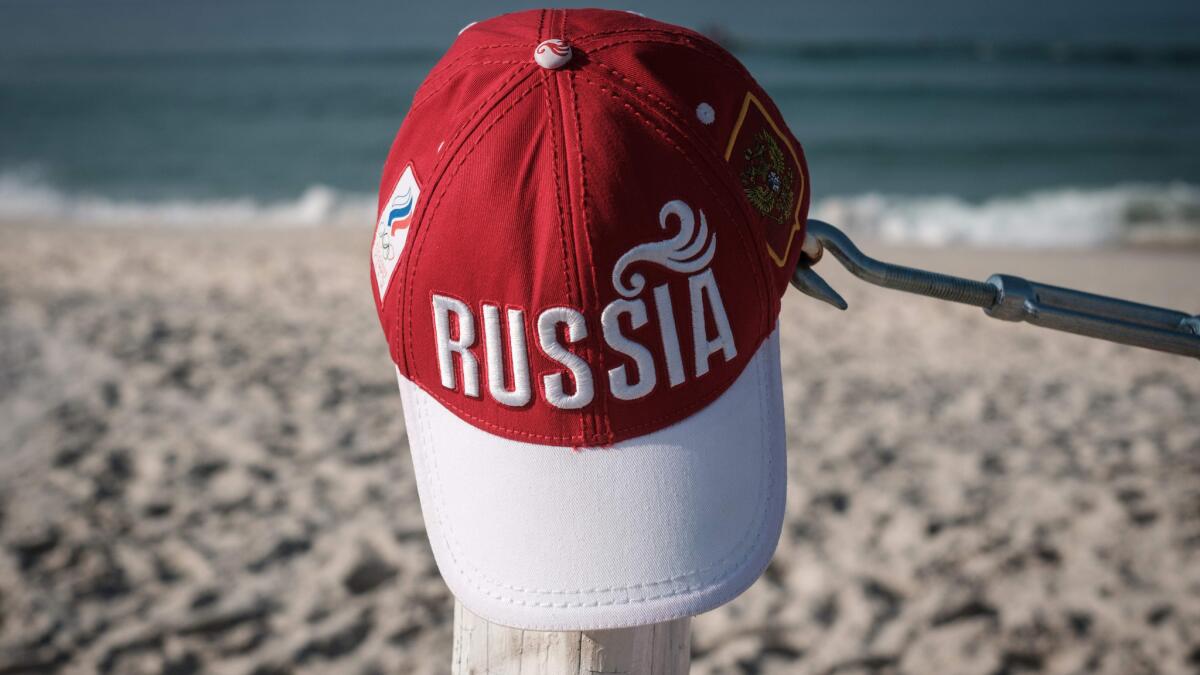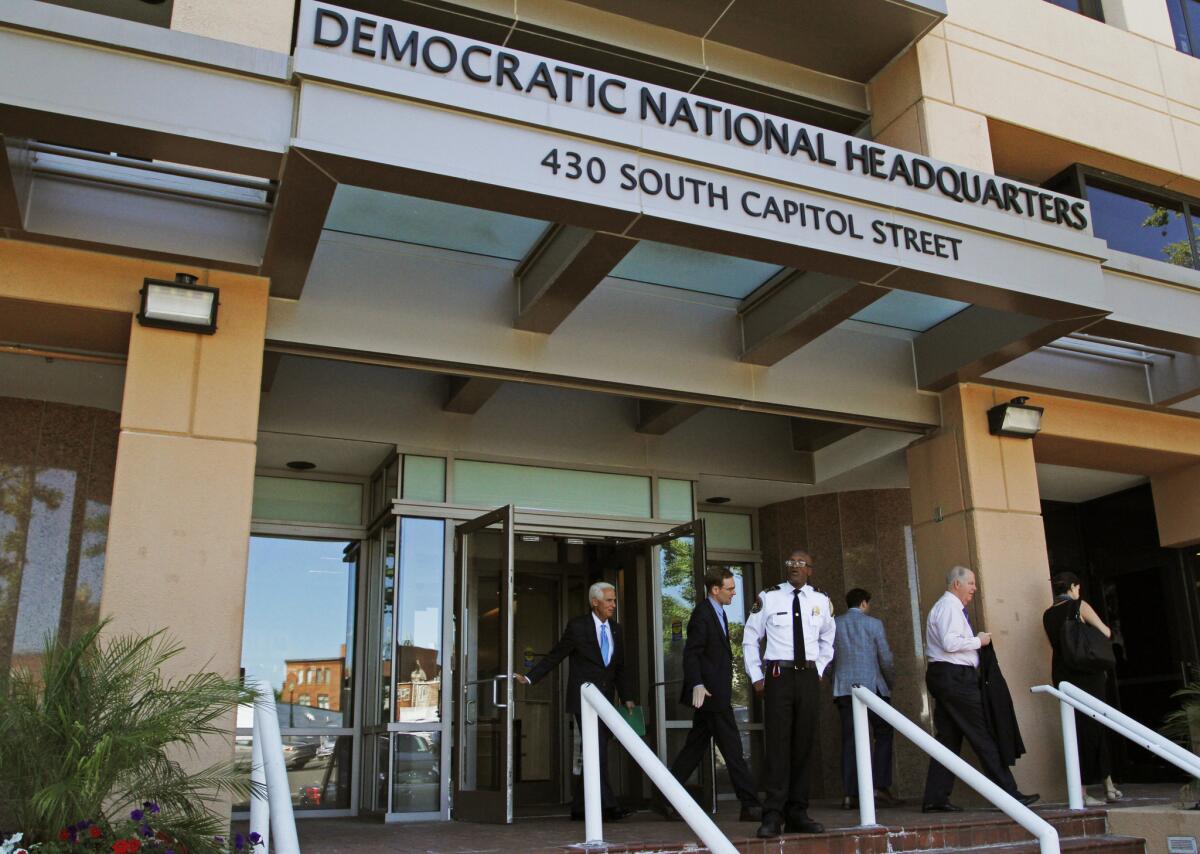Unleashing torrent of Cold War rhetoric, Russia denies hacking DNC

Reporting from Moscow — The Kremlin has sharply denied the claims of U.S. officials and security experts that Moscow may have been involved in the hacking of Democratic National Committee emails, and said Thursday that it was “absurd” that Russia had infiltrated Hillary Clinton’s private server.
Russian officials portrayed the accusations of cyber-spying as a Cold War-style effort by a presidential hopeful to score political points by portraying Moscow as an arch-villain.
“We don’t work with hackers, have never been involved in this kind of operation,” Kremlin spokesman Dmitri Peskov told reporters in response to a question about Republican nominee Donald Trump’s plea to Russia to find and turn over emails that Clinton deleted from a private server she used while she was secretary of State.
“Russia, if you’re listening, I hope you’ll be able to find the 30,000 emails that are missing,” Trump had said Wednesday, prompting strong criticism that he was, in effect, inviting a foreign power to spy on a rival. He later said he merely wanted the Russians to turn over the emails to the FBI if they had them.
Peskov used rhetoric that bordered on the Trump-like in dismissing the notion that Russia had hacked Clinton’s server.
“As to some direct or indirect accusations of the Kremlin or Russia in general in some involvement in cyberattacks, then this is absolutely absurd and a vivid example of the use of Russophobia for the election purposes in the U.S. And this is absurd that borders on total stupidity.”
“As to the massive [hacks], this is not our problem, this is not our headache,” he added. “Americans will have to sort out what are those massive [hacks] and what they are about and what problems the publication of these massive hacks brings about.”

Earlier in the week, the Russians had dismissed allegations that they had a hand in the release of Democratic National Committee emails that suggested party favoritism for Clinton, its eventual nominee, in her primary fight with Sen. Bernie Sanders.
Foreign Minister Sergey Lavrov told the Interfax news agency Tuesday that he “did not want to use the four-letter English curse word” to comment on the claims.
Lavrov, known for his macabre humor, reportedly used the f-word in 2008 in a conversation with British Foreign Secretary David Miliband when the two discussed Russia’s war with the former Soviet republic of Georgia.
The hacking and a subsequent leaking of some 20,000 DNC emails to WikiLeaks, an anti-secrecy group, was an embarrassment for Clinton’s campaign. The scandal broke on Friday, just three days before the start of the Democratic National Convention in Philadelphia.
One Russian analyst claimed that Clinton’s advisers have deliberately concocted the “Russian trail” to distract attention from the content of the emails.
Vladimir Vasilyev of the government-affiliated Institute for U.S. and Canadian Studies told the RIA Novosti news agency that there was no way to prove who had hacked the DNC. “These days, any hackers can do it from anywhere in the world,” he said. “That is why such claims about Russian hackers are absolutely unfounded and unprovable.”
Western officials, intelligence and cyber-security companies have repeatedly accused Russia of trying to hack the computer networks of U.S. government agencies and defense contractors, as well as the servers of NATO, Ukraine and Estonia.
CrowdStrike, a cyber security company, said in mid-June that it “stands fully” by its claims that two Russian intelligence-affiliated adversaries were present in the Democratic National Committee network in May.
Some Russian officials, perhaps nostalgic about the Cold War era, have hailed the hack as confirmation of Russia’s resurgent political might.
“It looks like, after all, President Obama and the Democrats consider Russia the only superpower in the world,” lawmaker Andrey Klishas told RIA Novosti.
Mirovalev is a special correspondent.
More to Read
Sign up for Essential California
The most important California stories and recommendations in your inbox every morning.
You may occasionally receive promotional content from the Los Angeles Times.










